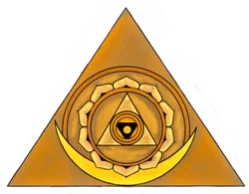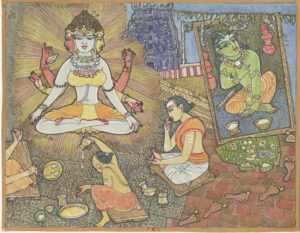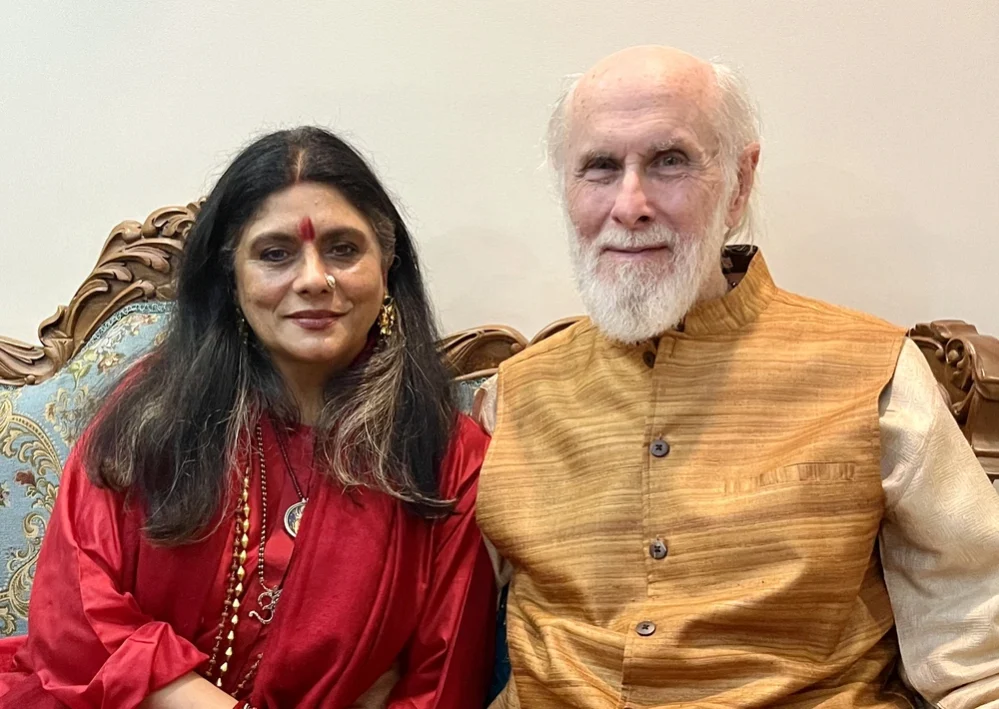Vata dosha is the most disease-causing of the three Doshas or biological humors of Vata, Pitta and Kapha.
It represents the air element that tends to disturb us, unground us and remove us from the heavier elements that sustain our physical existence. Pitta dosha as fire and Kapha dosha as water are more stabilizing forces, though each has its own disease tendencies. Vata types are usually thin, hypersensitive, nervous and anxious. Yet we al have our times in this stressful world when Vata’s instability affects us and makes us vulnerable to both physical and psychological disease factors, including weak immunity and poor resilience.
Vata dosha is connected to many disease conditions, including conditions born of aging, weak immunity, loss of body weight, debility, nervous and psychological disorders of all types. It pushes the other two doshas that cannot move without its motivating power. High Vata results in pain, debility, agitation, disequilibrium and dysfunction of various types. Most chronic and degenerative diseases are owing to it.
In our fast moving information technology era we have many new Vata disorders as well as an exacerbation of the old. We are constantly bombarded with disturbing electrical stimulation from our media devices from cell phones to computers, to the constant media barrage even in public places that increase the agitated qualities of Vata. We are taking more pharmaceutical and recreational drugs that can also be very taxing on our nervous systems, drying and depleting them and upsetting our organic equilibrium. In addition we are frequently on the go, moving, changing residences, jobs or even partners. We have irregular diets with fast food and artificial foods, seldom true natural nourishment. On top of this, our artificial life-styles often involve excess travel, overwork or over indulgence that also take their tolls. All of these create a perfect situation for Vata dosha to increase on both physical and psychological levels.
At physical levels, we suffer from irregular digestion, poor elimination, dry skin, allergies, arthritis, low immune function, exhaustion and debility, which all relate to Vata dosha. At nervous and psychological levels, we suffer from insomnia, bad dreams, fear, worry, anxiety, stress, loneliness, debility and hypersensitivity, complications of Vata as well. Such Vata problems increase with age, the Vata stage of life.
STUDY AYURVEDIC HEALING
Learn Ayurvedic Medicine with over 40 Lessons from Dr. David Frawley
Treating Vata Dosha Today
At a physical level, to counter high Vata dosha requires a rich and nutritive diet with regular cooked meals and mild spices like ginger, cinnamon, cardamom, turmeric and cumin to aid in digestion, with whole grains, beans and dals, root vegetables, seeds, nuts and dairy products, particularly of Vata-reducing properties. Relative to our physical life-style, going outdoors into nature, with fresh air, light exercise and sleeping early are essential, with proper rest and relaxation, extending to vacations, healing and yoga retreats.
Herbal Remedies for Vata
There are many Ayurvedic tonic herbs for lowering Vata dosha including ashwagandha, bala, shatavari, jatamamsi, calamus, brahmi and shankha pushpi. These are best taken in Ayurvedic preparations like ashwagandha arishta, ashwagandha lehyam, chyavan prash, brahma rasayana, or various milk decoctions. Vata types need to increase their Ojas or primary vital energy with such strengthening herbs.The Ayurvedic laxative formula triphala is important for reducing Vata in the large intestine in main site of accumulation in the body that sets in motion its disease causing energies.
For the mind, nervous system and bones, herbs like ashwagandha, calamus and brahmi are also good, but are better used as medicated oils like brahmi ghee, balashwagandha tailam, mahanarayan or dhanvantaram oils, abundantly applied warm to the body, including to the head, neck, ears, spine and joints. A simple shirodhara or warm sesame oil drip to the head can be very good. The use of special Ayurvedic enemas or bastis, whether cleansing or oil based may be required as well. Vata dosha types need their daily oil massage, particularly before sleep.
Yoga Asana for Vata
Yoga asanas of a gentle, slow and calming nature are great for Vata dosha, slow and deep pranayama with no forceful practices, inspired devotional chanting, with steady concentration and grounding forms of meditation are very helpful. Pratyahara, yogic relaxation and Yoga Nidra are excellent, letting go of the mind along with its worry and anxiety.
Vata Dosha and the Mind
Most Vata dosha problems begin with agitation and indecisiveness in the mind, inability to cope and loss of composure, compounded by worry and negative thinking. Vata types must cultivate stillness, calmness, detachment and peace of mind. We must never let the world become greater than our own inner nature which contains the powers of the entire universe.
We don’t have to react to everything that is happening in the world, most of which doesn’t concern us. We need both a good sense of humor and a receptivity to the benefic powers of higher consciousness that can be found at every moment. Our world may seem too much for us to handle, with too many things for us to do, too much responsibility, complications, involvements and expenses. But we can always turn within and move beyond anything that appears on the outside of us.
To reduce Vata we must give up their worrying minds and let the bliss of consciousness guide them from within. This is possible as Vata at a higher level as air and space gives us a sense that our true reality is beyond the material world. Let us move like the wind, passing through, embracing and transcending all!
Vamadeva Shastri







